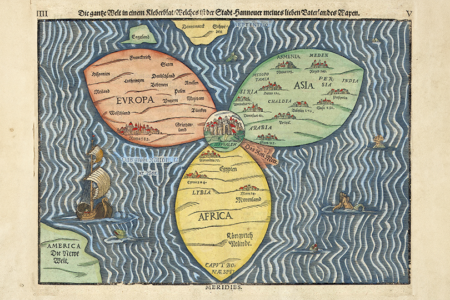Eleven Major Categories Of Messianic Prophecy Interpreted Part One
Prophecy
MESSIAH’S PLACE OF BIRTH
Micah 5:2 But thou, Bethlehem Ephratah, though thou be little among the thousands of Judah, yet out of thee shall he come forth unto me that is to be ruler in Israel; whose goings forth have been from of old, from everlasting.
Fulfillment
Matthew 2:1 Now when Jesus was born in Bethlehem of Judaea in the days of Herod the king . . . (cf. Luke 2:4-7).
Interpretation: The chief priest and scribes knew where Messiah would be born: “And they said unto him, In Bethlehem of Judaea: for thus it is written by the prophet, and thou Bethlehem, in the land of Juda, art not the least among the princes of Juda: for out of thee shall come a Governor, that shall rule my people Israel” (Matthew 2:5, 6). Notice, they clearly stated that Messiah would come from Bethlehem in the land of Judah. All the Jewish people in Messiah’s day knew He was to come from Bethlehem: “Hath not the scripture said, That Christ cometh of the seed of David, and out of the town of Bethlehem, where David was?” (John 7:42). Bethlehem means “house of bread”, and Messiah is our “Bread of Life”. Also notice that the One born is to be a “ruler in Israel” (Micah 5:2), who is deity, “whose goings forth have been from of old, from everlasting.” This prophecy clearly shows that Messiah, who was born in Bethlehem, pre-existed (before He was born); therefore, He is divine.
Prophecy
MESSIAH’S MANNER OF BIRTH
Isaiah 7:14 Therefore the Lord himself shall give you a sign; Behold, a virgin shall conceive, and bear a son, and shall call his name Immanuel.
Fulfillment
Matthew 1:18 Now the birth of Jesus Christ was on this wise: When as his mother Mary was espoused to Joseph, before they came together, she was found with child of the Holy Ghost (cf. Luke 1:26-35).
Interpretation:
Sign: The context shows that the sign would not be just for Ahaz, who had rejected the idea of a sign from God, but was to be for the “house of David”, which Ahaz did represent during this time (Isaiah 7:13).
Virgin: (Hebrew “Almah” – to conceal) The word “Almah” is used in Genesis 24:43; Exodus 2:8; Psalms 68:25; Song of Solomon 1:3; 6:8; Proverbs 30:19. The context of these passages favor the translation of “virgin” for Almah. In the third century B.C. (long before Christ’s birth), Jewish translators of the Septuagint rendered the word “Almah” with a Greek term for virgin “parthenos”. Matthew 1:23, quoting Isaiah 7:14 from the Septuagint, used the same term “parthenos”.
Rashi (1040-1105 A.D.), the great medieval Jewish commentator, known for his opposition to Christianity stated, “Behold, the ‘Almah’ shall conceive and bare a son and shall call his name Immanuel. This means that our Creator shall be with us. And this is the sign: the one who will conceive is a girl (naarah), who never in her life has had intercourse with any man. Upon this one shall the Holy Spirit have power.” (Buksbazen, Isaiah the Prophet, p. 150, Vol. II). Immanuel: The word literally means “God with us”. The word sets forth both His deity and His humanity. Other Scriptures bring out this same concept (Isaiah 9:6; John 1:14; Philippians 2:5-11). Therefore, the child born of a virgin is “God with us”, our Messiah.
Prophecy
MESSIAH’S TIME OF BIRTH
Genesis 49:10 The sceptre shall not depart from Judah, nor a lawgiver from between his feet, until Shiloh come; and unto him shall the gathering of the people be.
Fulfillment
Galatians 4:4 But when the fullness of the time was come, God sent forth his Son, made of a woman, made under the law (cf. Matthew 1:23, Luke 3:33).
Interpretation:
Shiloh: Rabbis have interpreted this to mean Messiah (the Prince of Peace) for centuries. Some want to say this was fulfilled in David, but this is impossible since there was no actual ruler from Judah until David ruled. But the verse says that there was rule in Judah before Shiloh was to come: therefore, David could not have fulfilled the prophecy.
Sceptre and lawgiver shall not depart: Sceptre – has always been interpreted to mean “tribal-rod or staff of office”, which was the ensign of authority. The idea is that Judah should retain both its tribal distinctness and separate authority until Shiloh (the Messiah) had appeared.
Lawgiver shall not depart – the legal authority of Judah to make laws and judge shall remain until Messiah has come. In 70 A.D., Judah lost both her “sceptre” (tribal distinctness) and “lawgiver” (legal authority to make laws). Therefore, Shiloh (Messiah) must have come before 70 A.D. Jesus had to be the One who fulfilled this prophecy and is the Messiah.
Daniel 9:25, 26 Know therefore and understand, that from the going forth of the commandment to restore and to build Jerusalem unto the Messiah the Prince shall be seven weeks, and threescore and two weeks: the street shall be built again, and the wall, even in troublous times. And after threescore and two weeks shall Messiah be cut off, but not for himself: and the people of the prince that shall come shall destroy the city and the sanctuary; and the end thereof shall be with a flood, and unto the end of the war desolations are determined.
Interpretation:
Daniel 9:25: From the commandment to rebuild the City of Jerusalem (which took place under the edict of Artaxerxes on March 14, 445 B.C., by our corresponding calendar date), until Messiah’s presenting of Himself would be 69 prophetical weeks of years (which would come to a total of 173,880 days).
445 B.C. to 32 A.D. is 476 years (B.C. 1 to A.D. 1 is one year)
476 x 365 days 173,740 days
add for leap years 116 days (3 less in 4 centuries)
March 14 to April 6 ____24 days (inclusive)
173,880 total days (sir Robert Andersen’s dates)
No matter how you figure the dates, the Messiah had to come before the destruction of Jerusalem (McDowell, Evidence That Demands a Verdict, p. 181).
Daniel 9:26: At the end of the 69 weeks, Messiah will be “cut off” (killed), but not for Himself (for the world). The city (Jerusalem) and the sanctuary (Temple) will be destroyed by the prince (Titus of Rome). This took place 40 years after Messiah’s crucifixion in 70 A.D. Therefore, Messiah had to come while the Temple was still standing before 70 A.D.
Prophecy
MESSIAH AS A PERSON
Isaiah 9:6 For unto us, a child is born, unto us a son is given: and the government shall be upon his shoulder: and his name shall be called Wonderful, Counsellor, The mighty God, The everlasting Father, The Prince of Peace.
Fulfillment
Luke 2:11 For unto you is born this day in the city of David a Saviour, which in Christ the Lord. John 3:16 For God so loved the world, that he gave his only begotten Son, that whosoever believeth in him should not perish, but have everlasting life.
Interpretation:
“For unto us a child is born” – in Isaiah 7:14 the birth of Messiah was previously announced, but now the “miracle Child”, who will bring redemption, is introduced in detail. His birth here indicates His humanity.
“Unto us a son is given” – notice God’s gift to His people is a Child who is a Son. Here we see the two natures of Messiah in one Person,
“A child is born” – His perfect humanity (Matthew 1:18-25; Luke 1:31-35; 2:1-7).
“A son is given” – His absolute deity. To assure us that this One spoken of is deity, the prophecy gives Him titles which no mere man could possess.
Four Titles Given Unto This Son
Wonderful Counsellor (Hebrew “Pele Yoetz”): “Wonderful” literally means a “wonder, or mysterious act of God beyond human grasp”, “Pele Yoetz”, therefore, means a “Wonderful Counsellor who partakes of the very nature of God.” Thus the first name of the Child clearly indicates His divine character.
Mighty God (Hebrew “El Gibbor”): Here the Messiah is called the “Mighty God”, the same name as God, thus clearly bearing witness to the divinity of the Messiah. Isaiah calls God the “Mighty God” in Isaiah 10:21.
The Everlasting Father (Hebrew “Abhi Ad”): “Everlasting Father,” literally means “Father of Eternity”. The name indicates that the Messiah is eternal and paternal in relation to His people.
The Prince of Peace (Hebrew “Sar Shalom”): Isaiah presents the Messiah as “The Prince of Peace”. Shalom means more than the absence of war and strife, but prosperity, well-being, harmony within and without, peace in one’s heart, and peace with God. It is the perfect state of man.
Taken together these four titles set forth the attributes of the “Child” who is to be born and the “Son” who is given. These terms express the miraculous nature and person of Messiah (titles taken from Buksbazen, The Prophet Isaiah. pp. 163-4).
Prophecy
MESSIAH’S RECEPTION
Isaiah 53:3 He is despised and rejected of men; a man of sorrows, and acquainted with grief: and we hid as it were our faces from him; he was despised, and we esteemed him not.
Fulfillment
John 1:11 He came unto his own, and his own received him not (cf. John 5:43; 7:5).
He was despised (felt contempt and scorn) and rejected (shunned) by men: The word for “men” (Hebrew ishim) is a reference not to ordinary men, but to men of stature and standing, or rank. They despised and rejected or felt contempt for Him and shunned Him.
And we hid our faces: The Jewish people and others have loathed to look at Messiah whom they have hated immensely. For hundreds of years His name was not mentioned among the Jewish people. The Hebrew name for Jesus, “Yeshua” (Saviour), has been deliberately distorted into “Yeshu”, the initial letters which were supposed to spell out a Hebrew sentence which means, “Let his name and his memory be blotted out.” Notice that “He was despised” is repeated twice to emphasize the intensity of man’s hatred for Him (Buksbazen, The Prophet Isaiah, p. 416).
“Esteemed him not”: It means that men estimated the Messiah as “a nothing”, or less than a person when He came to them.
Prophecy
MESSIAH’S SUFFERING
Isaiah 53:3 . . . a man of sorrows, and acquainted with grief . . .
Fulfillment
Matthew 26:38 Then saith he unto them, My soul is exceeding sorrowful, even unto death . . .
Matthew 27:30, 31 And they spit upon him, and took the reed, and smote him on the head. And after that they had mocked him, they took the robe off from him, and put his own raiment on him, and led him away to crucify him.
Interpretation:
Sorrow (Hebrew Machoboth. Lit. “affliction”): Sorrow means affliction or grief, which could either be physical or spiritual. Messiah felt the maladies of His people with a keen personal sensitivity.
Grief (Lit. “with sickness”): Not that He, by nature, had a sickly body; but that the wrath instigated by sin, and the zeal of self-sacrifice, burnt like a fire in His soul and body, so that even if He had not died a violent death, He would have succumbed to the force of destruction that was innate in His humanity because of the consequences of our sin which He bore and His own self-consuming conflict with them (Delitzsch, Isaiah, Vol. II. p. 314).
Prophecy
Isaiah 53:4 Surely he hath borne our griefs, and carried our sorrows . . .
Fulfillment
Matthew 8:17 That it might be fulfilled which was spoken by Esaias the prophet, saying, Himself took our infirmities, and bare our sicknesses.
Interpretation:
“Borne our griefs and carried our sorrows” is literally “borne our sickness and carried our pain.” “Borne and carry” have the idea “to take upon oneself, and carry it as one’s own”. Messiah bore our sickness and pain. The meaning is not that Messiah entered into the fellowship of our suffering, but that He took upon Himself and bore them in His own person that He might deliver us from them. Therefore, He became our substitute, suffering for our sins. This suffering was expiatory and vicarious in nature. The word “bear” (Hebrew “Nass”) is also connected with the sacrifices of expiation in Leviticus 5:1, 17; 16:22; 20:19, 20 (Buksbazen, The Prophet Isaiah, Vol. Il. p. 417).
Prophecy
Isaiah 53:4 . . . yet we did esteem him stricken, smitten of God, and afflicted.
Fulfillment
Matthew 27:41, 43 Likewise also the chief priests mocking him, with the scribes and elders, said, . . . He trusted in God; let him deliver him now, if he will have him: for he said, I am the Son of God.
Interpretation:
Stricken (Hebrew “Nagua”) – refers to a disease like leprosy.
Smitten of God – divine retribution for a heinous sin.
Afflicted – refers to being afflicted by punishment for one’s crime (Buksbazen, The Prophet Isaiah, Vol. II, p. 417).
All of these terms describe the terrible consequences of our sin upon the Messiah when He suffered for us.
Prophecy
Isaiah 53:5 But he was wounded for our transgressions, he was bruised for our iniquities: the chastisement of our peace was upon him; and with his stripes we are healed.
Fulfillment
1 Peter 2:24 Who his own self bare our sins in his own body on the tree, that we, being dead to sins, should live unto righteousness: by whose stripes ye were healed (cf. Matthew 27:26, 29; 1 Peter 3:18; Colossians 1:20).
Interpretation:
“But he”: Emphatic assertion that he suffered not for His own sins, but for those of His people.
“Wounded” (Hebrew “Mecholal”): Literally means “He was pierced”. Isaiah describes His actual type of death 700 years before it takes place. He was pierced with thorns (Matthew 27:29), nails (John 20:25), and a spear (John 19:34).
“He was bruised for our iniquities”: Bruised literally means crushed by the heavy load of our sins upon Him. “For” – He went through this suffering “for” our sin.
“The chastisement of our peace was upon Him”: Literally, “chastisement which secured peace” (Hebrew “Musar Shlomenu”). Forgiveness, to be real, must be obtained at a price. Therefore, Messiah took upon Himself the chastisement or punishment which secures our peace (Buksbazen, The Prophet Isaiah, Vol. II, p. 418).
“With His stripes we are healed”: By His stripes (vicarious suffering), we may secure peace (shalom), that is complete reconciliation with God. Healing here is the healing of the soul from the sickness of sin (Buksbazen, The Prophet Isaiah, Vol. II, p. 418).
Prophecy
Isaiah 53:7 He was oppressed, and he was afflicted, yet he opened not his mouth: he is brought as a lamb to the slaughter, and as a sheep before her shearers is dumb, so he openeth not his mouth.
Fulfillment
1 Peter 2:23 Who, when he was reviled, reviled not again; when he suffered, he threatened not; but committed himself to him that judgeth righteously (cf. Matthew 26:62-63; 27:12-14).
Interpretation:
When he was tormented and afflicted he quietly submitted to the ill treatment.
Prophecy
Isaiah 50:6 I gave my back to the smiters, and my cheeks to them that plucked off the hair: I hid not my face from shame and spitting.
Fulfillment
Mark 14:65 And some began to spit on him, and to cover his face, and to buffet him, and to say unto him, Prophesy: and the servants did strike him with the palms of their hands (cf. Matthew 27:26; John 18:22).
Interpretation:
“I gave my back to the smiters” – see Matthew 27:26 where Jesus was scourged (whipped).
“My cheeks to them that plucked off the hair” – this is a detail not recorded in the gospels which might have literally been fulfilled.
“I hid not my face from shame and spitting” – see Matthew 27:30. Spitting in the East is a mark of contempt and scorn and is practiced to this day.
Prophecy
Isaiah 52:14 . . . his visage was so marred more than any man, and his form more than the sons of men.
Interpretation:
His visage (facial expressions) and His form (body) was so marred (mutilated) that it was not recognized as being human. This shows the horrible wrath of Satan and man that was poured out on the Messiah.







